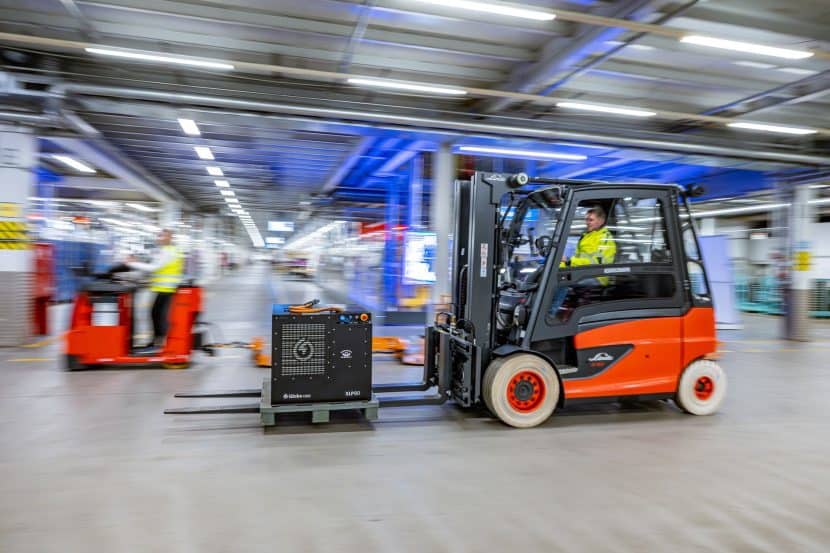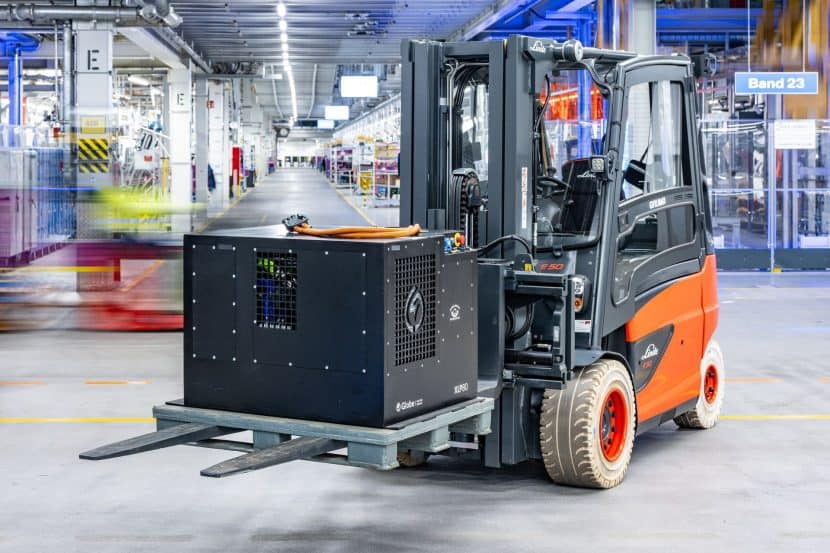BMW Integrates Hydrogen Technology Into Production Logistics


BMW continues its exploration of hydrogen as a key component of its sustainability strategy, expanding its applications both in production processes and future vehicle development. While the company plans to introduce hydrogen-powered production cars in 2028, it is already enhancing the use of hydrogen-powered tools at its manufacturing facilities. This includes significant developments at BMW Group Plant Regensburg, where hydrogen will soon play a central role in production logistics.
Starting in 2026, the Regensburg plant will incorporate hydrogen-powered tugger trains and forklift trucks into its logistics operations. These vehicles will manage transport tasks across the press shop, body shop, and assembly, ensuring efficient delivery of components and parts to assembly lines.


This transition is part of BMW’s iFACTORY initiative, aimed at creating digital and sustainable manufacturing systems. Armin Ebner, head of BMW Group Plant Regensburg, noted, “The gradual transition from electric to hydrogen propulsion brings us another step closer to the BMW iFACTORY, our digital and sustainable factory of the future.”
Currently, the plant’s logistics fleet is powered by electric drive systems, requiring battery changes twice per shift. Each replacement takes approximately 15 minutes and relies on additional storage and crane operations. The shift to hydrogen propulsion will eliminate these constraints, offering faster refuelling and streamlined operations.
To support this transition, a two-kilometer hydrogen pipeline network with six decentralized filling stations will be installed by early 2026. These stations will provide hydrogen to the fleet, which consists of about 230 tugger trains and forklifts. Delivered via special trailers, the hydrogen will also serve as an interim storage solution. By the time the transition is fully implemented in 2030, the plant is expected to consume around 150 tonnes of hydrogen annually.
First published by https://www.bmwblog.com
Source: BMW BLOG
Recent Posts
NASA Astronaut Don Pettit Uses His Camera for Science in Space
NASA astronaut Don Pettit, known for his incredible astrophotography, sense of humor, and clever camera…
WhatsApp now lets users create their own sticker packs
WhatsApp this week released a major update that adds a new way to create and…
Ben Affleck Has a New Batman Complaint: Wearing the Batsuit Sucked
The actor has long since moved on, but he'll forever be asked about his DC…
LEGO Easter Sale Drops Deals Too Sweet to Miss, Hurry This Won’t Last Long
Dozens of awesome building kits for all ages are marked down from now through April…
This Reminders feature is a lifesaver when my task list grows too long
Apple’s Reminders app has become a powerful task manager in recent years, and there’s one…
Trump Weaponizes Bureaucratic Review to Stop Offshore Wind Project
What happened to cutting red tape?